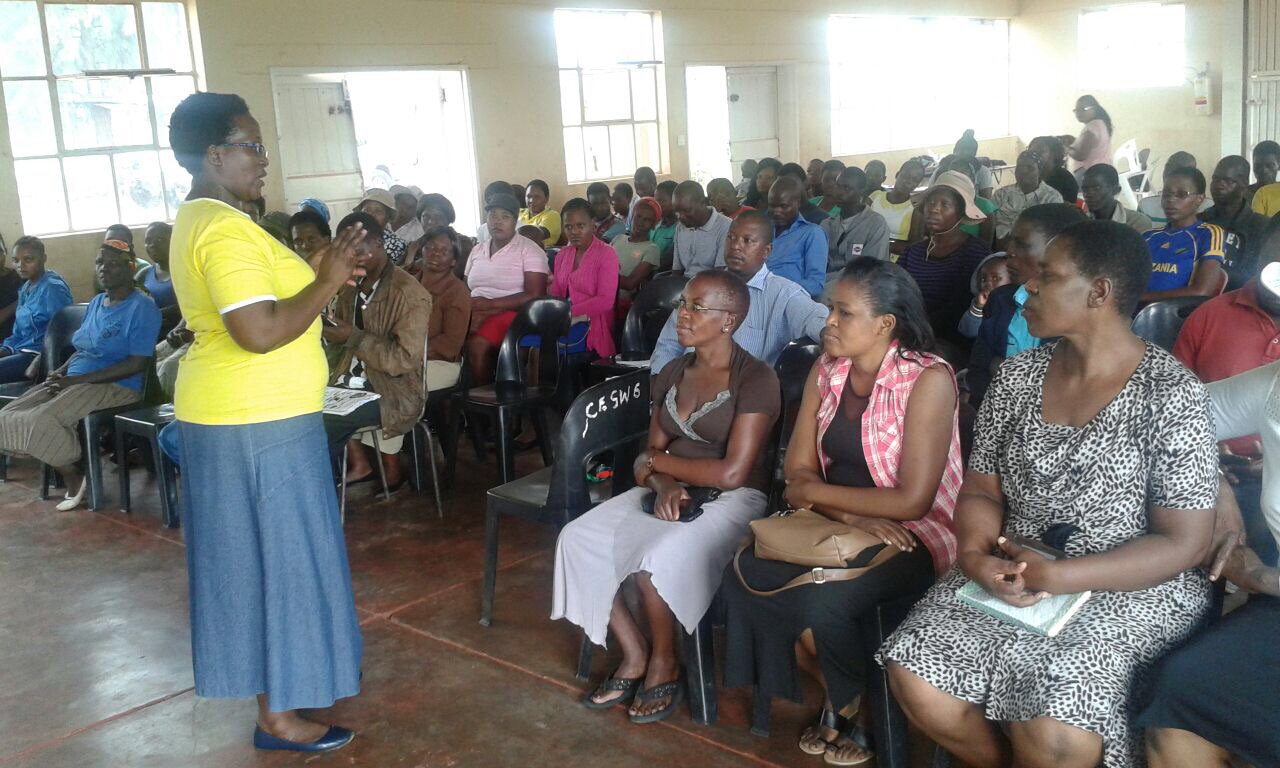|
Getting your Trinity Audio player ready…
|
By Zimbabwe Lawyers for Human Rights
GWANDA – Villagers of Polite, Manonkwe, Stanmore, and Mahlokohloko villages in Gwanda North have blamed school curricular that is not holistic and advances in technology for rising cases of sexual relations with and between minors.
The villagers argued that information being taught in schools was not proving to be of any help as children now feel they invented sex and thus prone to engaging in it despite it being illegal.
They were speaking at a Mobile Legal Clinic (MLCs) held by Zimbabwe Lawyers for Human Rights (ZLHR) at Shake Business Centre.
“They raised the issue of how the school curriculum is not holistic in terms of the information that their children are accessing,” said Prisca Dube of ZLHR.
“They felt that sexual reproductive related subjects in the school combined with access to technological gadgets like laptops and cell phones encourage children to experiment with sex when they are not fully equipped with necessary information such as what ZLHR and Zimbabwe Human Rights Commission (ZHRC) was sharing with the community.
“The half-baked information that children now have, what they see on social media and television makes them believe they invented sex and they also no longer have the respect of parents and guardians and fear nothing at all as they view life as a joke.”
Villagers requested that information by ZLHR and ZHRC be reduced into factsheets that children can have access to so that they get an appreciation of the legal framework around marriages, child marriages, and age of consent for sexual relations.
Added ZLHR: “Maybe if they can access balanced materials and know the consequences of indulging early, some of them might be saved from teenage pregnancies and early marriages.”
Much like the rest of the areas around them, the villages have seen an influx of illegal gold panners whose flashy lifestyle plus “impoverishing” COVID-19 restrictions have increased the vulnerability of girls and young women.
Some of the families, ZLHR learnt, are now seeing their girls as the only way out of poverty.
“The community has recently seen an explosion of illegal gold panners which combined with the COVID-19 pandemic has shown glaring gaps in terms of how protected girl children are while simultaneously increasing the vulnerability of girls and young women in the area,” ZLHR said.
“The poverty levels experienced by most families as a result of the pandemic, lockdowns, closure of the borders and the schools also closing has made some families treating their girl children as projects to end family poverty.
“There has been an increase in teenage pregnancies as well as early marriages as a result of these pregnancies.”
One woman who spoke on condition of anonymity said her daughter was impregnated at 14 years of age and is almost 16 years now, pregnant with a second child from the same man. She said the man in question paid ‘lobola’, is very responsible and is taking care of the “young wife”.
She explained how reporting the case to ZRP does not have an answer for the immediate concerns she is experiencing in her fight against abject poverty
